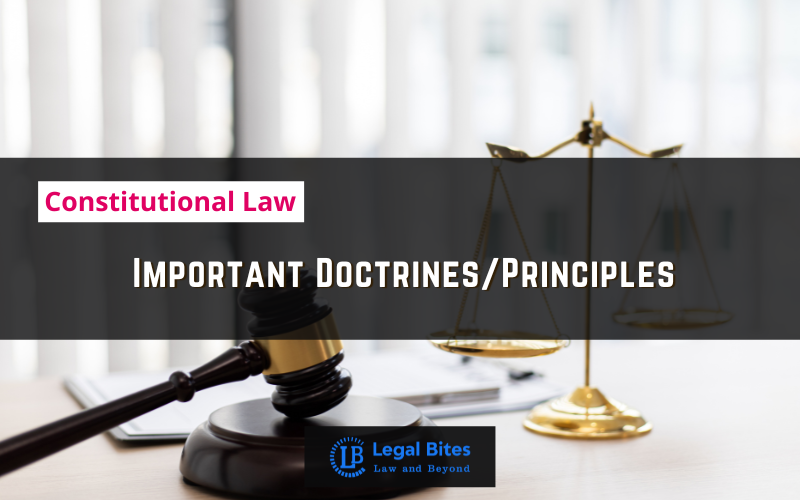Write a short note on the Doctrine of Pleasure and the concept of reasonable opportunity of hearing in the Constitution of India.
Question: Write a short note on the Doctrine of Pleasure and the concept of reasonable opportunity of hearing in the Constitution of India. [RJS 2014] Find the answer to the mains question only on Legal Bites. [Write a short note on the Doctrine of Pleasure and the concept of reasonable opportunity of hearing in the Constitution of India.]… Read More »
;
Question: Write a short note on the Doctrine of Pleasure and the concept of reasonable opportunity of hearing in the Constitution of India. [RJS 2014] Find the answer to the mains question only on Legal Bites. [Write a short note on the Doctrine of Pleasure and the concept of reasonable opportunity of hearing in the Constitution of India.] Answer Article 310 of the Constitution has integrated the doctrine of Pleasure and provides that all persons who are members of the Defense Services or...
Question: Write a short note on the Doctrine of Pleasure and the concept of reasonable opportunity of hearing in the Constitution of India. [RJS 2014]
Find the answer to the mains question only on Legal Bites. [Write a short note on the Doctrine of Pleasure and the concept of reasonable opportunity of hearing in the Constitution of India.]
Answer
Article 310 of the Constitution has integrated the doctrine of Pleasure and provides that all persons who are members of the Defense Services or the Civil Services of the Union or All India Services hold office during the pleasure of the President. Similarly, members of State Service hold their positions during the pleasure of the Governor. The Supreme Court of India has justified the Doctrine of Pleasure on the grounds of Public Policy, public interest, and the public good.
However, one of the restrictions placed on the usage of the Doctrine is that no such person as aforesaid shall be dismissed or removed or reduced in rank except after an inquiry in which he has been informed of the charges against him and given a reasonable opportunity of being heard in respect of those charges.
In Khem Chand v. Union of India [AIR 1958 SC 300], the Supreme Court held that the ‘reasonable opportunity’ means:-
- An opportunity to deny his guilt and establish his innocence, which he can do only if he is told what the charges leveled against him are and the allegations on which such charges as based.
- An opportunity to defend himself by cross-examining the witness produced against him and by examining himself in support of his defiance.
- An opportunity to make his representation as to why the proposed punishment should not be inflicted on him.
Important Mains Questions Series for Judiciary, APO & University Exams
- Constitutional Law Mains Questions Series Part-I
- Constitutional Law Mains Questions Series Part-I
- Constitutional Law Mains Questions Series Part-II
- Constitutional Law Mains Questions Series Part-IV
- Constitutional Law Mains Questions Series Part-V
- Constitutional Law Mains Questions Series Part-VI
- Constitutional Law Mains Questions Series Part-VII
- Constitutional Law Mains Questions Series Part-VIII
- Constitutional Law Mains Questions Series Part-IX
- Constitutional Law Mains Questions Series Part-X



